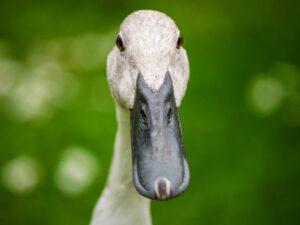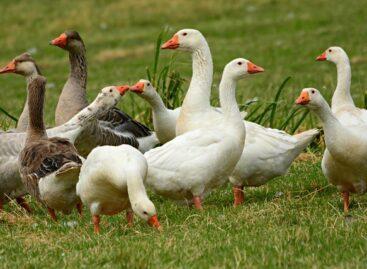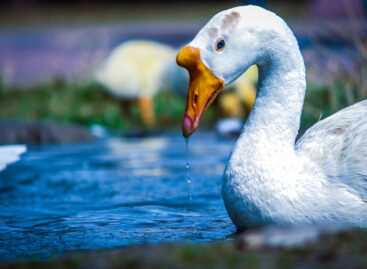The domestic waterfowl sector faces unprecedented challenges
Chinese dumping goods, avian influenza, labor shortages, drought, and rising costs – these pressures are simultaneously weighing on Hungary’s waterfowl sector, which in recent years has been forced to operate increasingly in “survival mode.” While several producers have had to shut down or suspend operations, the industry is striving to find answers to these challenges through joint efforts – reports Agrárszektor.
 The recurring outbreaks of avian influenza have hit duck and goose farmers particularly hard. The culling of entire flocks and prolonged quarantines have caused severe financial losses, while the EU-wide rollout of vaccination programs is still pending. This uncertainty also restrains investments, as few are willing to commit to development projects worth hundreds of millions in such an unpredictable environment.
The recurring outbreaks of avian influenza have hit duck and goose farmers particularly hard. The culling of entire flocks and prolonged quarantines have caused severe financial losses, while the EU-wide rollout of vaccination programs is still pending. This uncertainty also restrains investments, as few are willing to commit to development projects worth hundreds of millions in such an unpredictable environment.
Threat of Dumped Imports
The market across Europe is being disrupted by Chinese duck imports sold below production cost, which do not comply with EU animal welfare and food safety regulations. The AVEC has already launched an anti-dumping investigation, but slow decision-making means it will take at least a year before results are expected. Due to these artificially low prices, the sector has been operating at a continuous loss, and several smaller players have already abandoned production.
Falling Goose Consumption
The goose sector, especially premium products such as foie gras, is suffering from declining demand, particularly in Western Europe. In Germany, the largest export market, the economic downturn has led consumers to spend less on expensive seasonal meats. Price competition is further eroding profitability, while avian influenza-related housing restrictions pose additional challenges, especially compared to the traditional free-range systems used for geese.
Domestic Market and Developments
On the domestic market, however, duck meat has become more popular: it is now consumed weekly by households and restaurants. Lower VAT and broader supermarket availability have contributed to this trend. The Tranzit Group, for instance, has launched a HUF 26 billion investment program, including new farms, a feed mill, and modernization of slaughterhouses.
Support and Adaptation
A new government support scheme allows farmers to suspend production for three years in exchange for non-repayable grants, thereby reducing the risk of outbreaks. Investments also increasingly focus on automation to ease the pressure of labor and energy costs.
Mixed Outlook
In 2025, the market appears to be stabilizing: duck meat prices are lower than in 2023 but more predictable. However, feed supply is severely threatened by drought and climate change, and Hungary occasionally even faces supply shortages, forcing reliance on imports.
“I have never seen anything like this: the entire European duck sector jointly took action in Brussels against Chinese dumping. This shows the magnitude of the problem – but also that there is hope if we stand together,” said Ákos Szabó, CEO of the Tranzit Group.
Related news
AM: government helps waterfowl farmers with additional resources to prevent bird flu
🎧 Hallgasd a cikket: Lejátszás Szünet Folytatás Leállítás Nyelv: Auto…
Read more >The government is helping waterfowl farmers prevent bird flu with additional funds
🎧 Hallgasd a cikket: Lejátszás Szünet Folytatás Leállítás Nyelv: Auto…
Read more >Good news: there will be no shortage of foie gras
🎧 Hallgasd a cikket: Lejátszás Szünet Folytatás Leállítás Nyelv: Auto…
Read more >Related news
The Store of the Future opens again at the SIRHA Budapest exhibition! (Part 1)
🎧 Hallgasd a cikket: Lejátszás Szünet Folytatás Leállítás Nyelv: Auto…
Read more >Cheese-cocoa-peach jam: these are the most popular cookie flavors
🎧 Hallgasd a cikket: Lejátszás Szünet Folytatás Leállítás Nyelv: Auto…
Read more >









